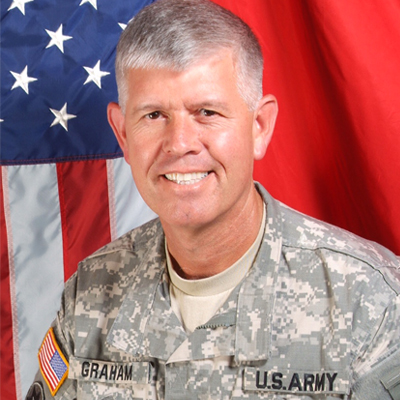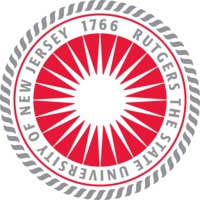24/7 helpline employs veterans to provide peer support to other military members, veterans, and families
According to The Washington Post, over 1.4 million veterans feel disconnected from civilian life, while other statistics show that over 22 members of the armed forces take their lives each day. One major factor that makes it difficult for active duty soldiers and veterans to connect with even their closest loved ones is the detachment they feel in sharing the hardships of training and combat that no civilian truly understands. Moreover, the stigma they face when seeking mental help is often overwhelming. Vets4Warriors (V4W), a 24/7 peer support telephone service based at Rutgers University Behavioral Health Care, employs over 50 highly trained veteran “peers” with “shared lived experiences” who can draw on their military backgrounds and their own challenges to provide non-stigmatizing, confidential, and even anonymous help to active duty soldiers and veterans. Lending a respectful and empathic ear to each individual who has served and is serving our country, the veteran peers are committed to walking the callers through their daily struggles with PTSD, anxiety, isolation, and depression before they escalate to a crisis, and often guide them to other helpful medical, financial, legal, and mental health resources. With a senior, licensed mental health professional immediately accessible for consultation and direct involvement at all times, the call is toll free and available to all active duty, reservists, national guard service members, veterans, and their families.
The V4W leadership includes Mark Graham, a retired Army Major General (2 star), and Peg Grandison L.C.S.W, a Senior Clinical Administrator with over 30 years of diverse clinical expertise in trauma services, community mental health and peer support programs. The V4W military peer programs are based upon the Cop2Cop cultural peer support model developed by Rutgers University about 16 years ago. This model has been recognized by the Defense Center of Excellence as an effective best practice. V4W has continued in this model and collected data from more than 131,000 contacts since its inception in December, 2011. Surprisingly, however, there is not much research being done in cultural peer support for this vulnerable military population. Most peer support research has been focused on peer services used in behavioral health programs, not cultural peer programs where peers share a similar “culture” or life experience (.e.g. the military, law enforcement). Recently, the Department of Defense announced that it will no longer fund this national program starting August 15, 2015. Private funding will therefore: 1. allow the program to continue supporting not only callers seeking help but also veteran peers who are providing support, and 2. enable rigorous research in peer support that will translate intuitive, anecdotal evidence of the efficacy of peer support into empirical data. This would include callers with symptoms of depression, loneliness, PTSD, substance abuse, marriage/relationship problems.
How is cultural peer support making a difference?
- Building on Shared Life Experiences: When someone calls the helpline, the phone is answered within 20 seconds by a veteran. Talking with someone else who has served gives a message: “I’ve been where you are and I’m with you now.” Being attentive to individual concerns, talking and sharing with them for as long as they need, and helping callers with their daily struggles is a powerful way of connecting and establishing trust. The V4W program has observed amazing conversations where a peer has helped a struggling veteran or service member where no other program has been able to and often this happens in a relatively short time.
- Connecting Callers with Resources: Although V4W can be an independent service, when requested, it is highly collaborative and complements other more traditional medical, financial, legal and mental health resources. To give an example of how it supports traditional mental health services: a female caller who was struggling with her therapy, found it much easier to open up to a veteran peer because the peer had been through something similar -- unlike her psychiatrist. When the peer highlighted the importance of opening up and getting help from her psychiatrist, the caller took the advice seriously. She called back later testifying that the care she is now receiving is much more helpful. Peer support can be a useful anchor in keeping people not only engaged in their care but also improving the quality of care.
- Destigmatizing: There is a popular belief among many of those who are actively serving that openly choosing to seek mental health services will affect the longevity and the strength of their military career. Moreover, PTSD is often accompanied by problems with alcohol and substance use, which can have serious consequences to their careers. Choosing to speak with a confidential veteran peer does not have these risks. Instead of fear, they are spoken to with respect and gratitude for their service. For example, one caller who did six tours of duty in a combat zone, was suicidal when asked to leave the military due to repeated driving violations. V4W helped him follow through with many services and he appreciates the guidance of a peer who helped him maneuver through his many care providers. Although V4W is not a crisis line, peers are trained to handle crisis calls, and peer support in times like this, is lifesaving, removing the stigma about speaking out and restoring self confidence that helps veterans do great things.
- Sustaining a Support System: V4W is built around a rigorous practice of follow up and outreach to all callers with the goal of building resilience and health for service members, veterans, and their families. A current project involves sustaining and developing a career ladder for military and other cultural peer support staff at Rutgers University. The University would offer a certificate level of peer support, an associative degree level and a bachelor’s level. These stepping stones, along with empirical support for their work, will assure many vulnerable populations with a service that helps them rebound and thrive.

Bio
“Why are we here doing this, instead of elsewhere?” were the words of Maj. Gen. Mark Graham (Ret.) as he shared his passion. During his 34 1/2 years in the US Army, his wife and he lost two sons, one -- Kevin -- to suicide in June 2003 and the other -- Jeffrey -- to an IED explosion in February 2004 while serving in Iraq. Vets4Warriors offers the opportunity to help others, all of the "Kevin's" out there who have no voice. It also allows him to be part of a team helping all those serving, veterans, and their families to receive support before their life is in crisis. “Peer support works,” he stresses; “it makes a difference in the lives of others but we need evidenced based research to show others the value of cultural peer support. Research will allow this work to continue in the future."
Peg Grandison, is the Senior Clinical Administrator whose husband was drafted into the military during the Vietnam conflict. She started her career in one of the first mental health centers funded under the John F. Kennedy Community Mental Health Act. She has been privileged to be part of the beginning and the expansion of community mental health centers across the country. Most of her work was in urban centers and then expanded to psychiatric hospitals. She has worked with people who have had extreme life experiences and witnessed the effects of trauma in their lives and the lives of family members. Helping them has always been her passion, and she adds -- “Now to see these extraordinary young military people return to civilian life, and train and prepare them for this peer support work has been a gift to me. Learning how to help their fellow peers also helps them grow and learn new coping skills. We call this work “reciprocal peer support”.
Although some believe that because we are coming out of the war and things are settling down, these programs are not necessary; however, the visible and invisible scars of war do not wear away easily with time. “You never know when this is going to hit them and their families, years later,” says Gen. Graham (Ret.). This is why an effective, cultural peer support model is critical, to let people know they are not alone at this very moment.
Their call-in satisfaction line may just speak for itself: Here is one example: “I spoke with (peer)...he was compassionate, and listened to my whining. He may have saved my life. I have a lot of respect for…(peer). Thank you for your organization and thank you for being there today.”
For more information, visit vets4warriors.com
In the News
Burlington County Times
NBC New York
The Gazette
Videos
Awards
Mark Graham, Major General US Army (Retired)
2013 National Council for Community Behavioral Healthcare ‘Lifetime Achievement Award’
2011 Community Healing Adolescent Depression and Suicide (CHADS) Champions Award
2010 American Foundation for Suicide Prevention (AFSP) Lifesaver Award for Public Service
2009 Secretary of Defense Robert Gates nominated Major General Graham for Time magazine's 100 most influential people
2009 Tragedy Assistance Program for Survivors (TAPS) Honor Guard Leadership Award


